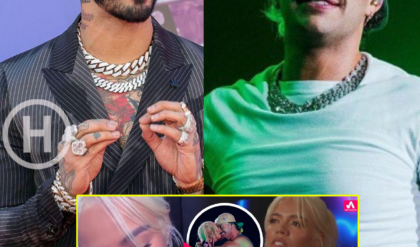In this riveting interview, the renowned comedian Katt Williams sheds light on what he perceives as a sinister agenda against black actors orchestrated by media moguls Oprah Winfrey and Tyler Perry. Williams exposes alleged instances of underpayment of black actors, particularly highlighting Oprah’s treatment of talented individuals like Taraji P. Henson. He presents new evidence and shares insights into the challenges faced by black actors in the industry.
In the ever-evolving landscape of the entertainment industry, few figures hold as much influence and reverence as Oprah Winfrey. From her groundbreaking talk show to her philanthropic endeavors, Winfrey has long been celebrated as a champion for social change and empowerment. However, recent revelations and accusations have cast a shadow over her legacy, raising questions about her true intentions and impact, particularly concerning her treatment of black artists within the industry.

The latest controversy surrounding Winfrey erupted when comedian Cat Williams made explosive claims, asserting that she operates as a puppet handler for Hollywood elites, manipulating black artists for their benefit. Williams’ accusations, though bold, are not without precedent. Actress Taraji P. Henson previously criticized Winfrey for alleged exploitation and underpayment after starring in one of her films, shedding light on systemic inequalities within the industry.
Moreover, Williams’ claims resonate with allegations from other quarters. Rapper Ludacris accused Winfrey of exploiting her platform to tarnish the reputations of black artists, citing his own uncomfortable experience during an interview on her show. These accusations challenge Winfrey’s carefully crafted public image as a beacon of empowerment for marginalized communities, raising doubts about her commitment to uplifting black voices.
Scroll down to watch the video
The controversy deepened with Winfrey’s involvement in the Michael Jackson narrative. Following the release of the controversial “Leaving Neverland” documentary, Winfrey faced criticism for allegedly capitalizing on unsubstantiated allegations against the late pop icon. Critics accused her of hypocrisy, pointing to her close ties with individuals like Harvey Weinstein, who faced similar accusations of sexual misconduct.
Furthermore, Winfrey’s silence on serious allegations against her associates, coupled with her endorsement of figures like Brazilian spiritual healer John of God, further fueled speculation about her true intentions. Critics argue that Winfrey’s actions belie her public persona as a champion of justice and morality, exposing a disconnect between her rhetoric and her associations.

The controversy surrounding Winfrey extends beyond allegations of exploitation and hypocrisy to include accusations of intimidation and manipulation. Both Henson and Monique, another black actress, have accused Winfrey of attempting to silence them and hinder their careers after speaking out against unfair treatment in the industry. These allegations paint a troubling picture of Winfrey’s influence, suggesting a pattern of behavior inconsistent with her professed values.
In response to the growing backlash, Winfrey has remained largely silent, choosing to distance herself from the controversy rather than address the allegations head-on. This reluctance to engage has only fueled speculation and intensified scrutiny, as observers question Winfrey’s true motives and the extent of her influence within the industry.
As the controversy surrounding Winfrey continues to unfold, it underscores broader issues of representation, power dynamics, and accountability within the entertainment industry. It serves as a reminder that even those who claim to advocate for social change are not immune to criticism and scrutiny, and that true progress requires a commitment to transparency, integrity, and justice for all.
In essence, the controversies surrounding Winfrey reveal the complexities of navigating power and influence in an industry fraught with systemic inequalities and entrenched interests. They challenge us to interrogate the narratives we accept and the figures we elevate, urging us to demand greater accountability and fairness in the pursuit of a more equitable future.
Watch full video below:





